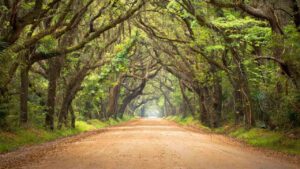Different Areas of Natural Science

Science nature is a major field of science concerned mainly with the study, prediction, and explanation of natural phenomena based largely on empirical research from observation and experiment. Mechanisms involved include replication and peer review of research findings, both in humans and animals. The application of statistical techniques is also commonly used, as well as testing of alternative hypotheses. All these methods are utilized to provide a scientific account of natural phenomena and explain how these occur.
One of the main areas of natural sciences is biology. This includes studies of living things, their evolution, and interaction with each other. Many different forms of life have been studied, including plants, animals, bacteria, and the various physical processes involved in their behavior.
Another area of natural sciences is zoology. This field studies all living things, their physical characteristics, and their interactions with each other. This also includes studying animals and plants, including all species in the world, their relations to each other, and what they eat and what they cannot eat. Some of the most well-known examples of this field are ornithology (study of birds) and zoology (study of living things).
A third area of natural sciences is ecology or the study of living things in relation to their environment. Here, one focuses on the life of an organism, its interaction with its environment, and its interactions with its relatives. A broad term that encompasses several fields is “ecology.”
Some areas of natural sciences deal with the study of human life and culture. Human behavior and culture can be studied in many forms. For example, there is anthropology, which deals with how human societies interact with each other and the environment. Then there is sociology, which studies human societies and society in general, from politics to business, to the family. These fields also have their own subfields.
Other types of study deal with a specific type of natural phenomenon. These include zoology, biology, botany, zoology, marine biology, and so on.
Science nature is the result of scientific inquiry of the natural world around us. From botany to ecology, from anthropology to human life, all of these fields make use of the scientific methodologies and empirical research to seek a scientific explanation of the natural world we live in.
This is a great source of information. With over six billion people in the world and nearly eight thousand new species being discovered every year, there are a lot of interesting questions to be answered.
There are many theories that explain the natural world, such as scientific theories, or theories of evolution, quantum mechanics, and relativity. If you want to know about something more specific, such as a certain plant or animal, you can search the internet for a website devoted to that subject. or get in touch with a local zoologist.
The scientific methodologies used to make a hypothesis, prove a hypothesis and to test a hypothesis can take months. or years to complete. This is why it takes so long to develop a successful cure or treatment for a particular disease, whether it’s an infectious one a genetic disorder, or cancer.
Natural science is still growing. The first people to document the various natural phenomena in the early centuries were the Greek, Egyptian, Chinese, and Indian scholars. They brought their observations back to Europe, where they were published as books.
Throughout the ages, as technology improved, man learned to manipulate nature. Eventually, he was able to do everything that the natural world had to offer. A man and his tools began to manipulate and change nature, and thus science nature was no longer the unchanging and beautiful thing that it was always supposed to be.
Modern science has helped us to better understand the natural world around us, to study it in different ways, and to find new ways to improve it. But without it we could never have explored the world as we do now. So, if you’re interested in getting into science nature, the best place to start is with some of these examples.

Leave a Reply